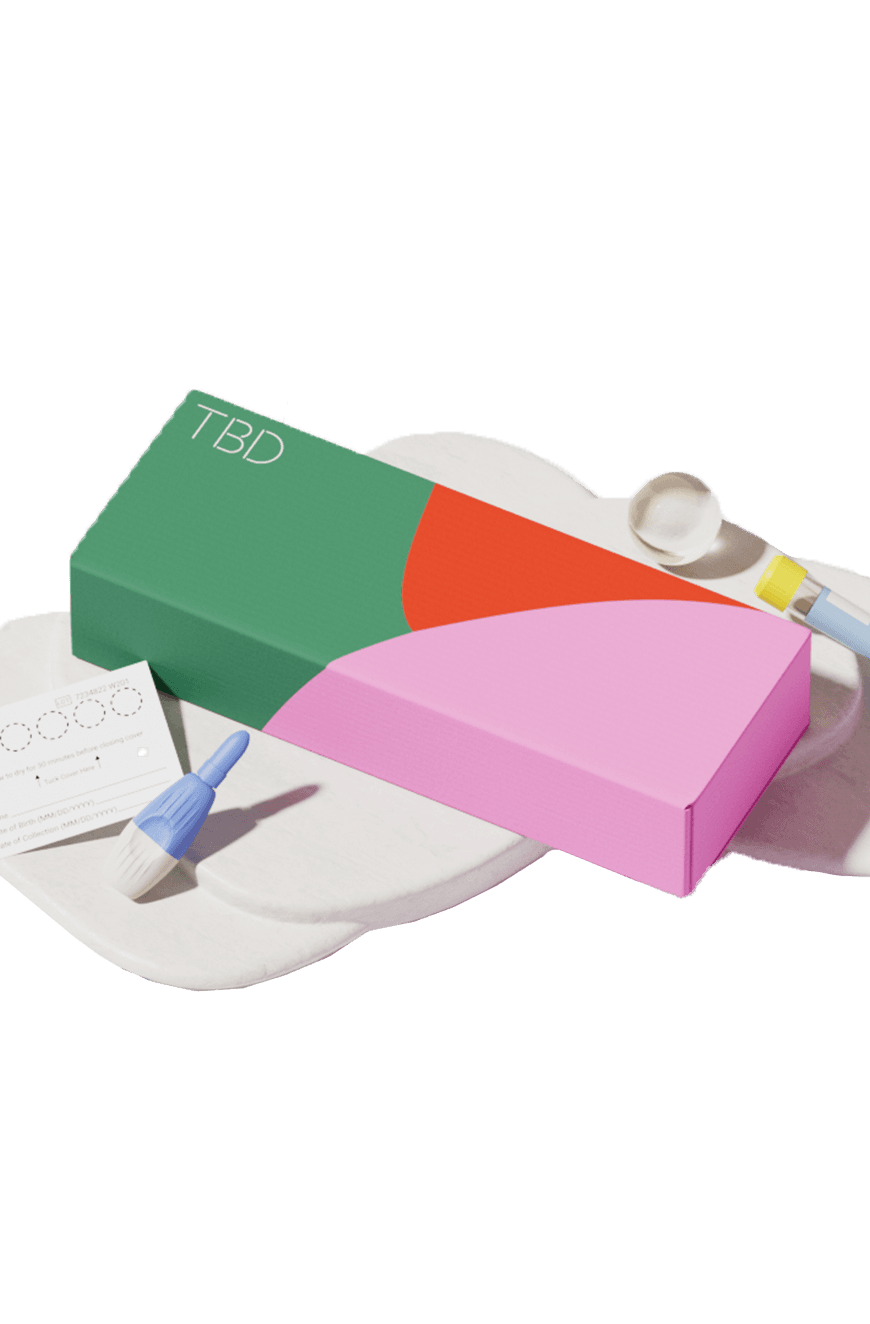| TBD Panels | 3-Panel STD Test | 9-Panel STD Test | 5-Panel STD Test | 3 Site: Oral, Rectal, Genital |
|---|---|---|---|---|
| Chlamydia |  |  |  |  |
| Gonorrhea |  |  |  |  |
| Trichomoniasis |  |  |  | |
| HIV (Ag/Ab) |  |  | ||
| Syphilis |  |  | ||
| Hepatitis B & C |  | |||
| Mycoplasma Genitalium |  | |||
| Herpes I / II |  |

- 8 E Charleston Blvd
- Las Vegas, NV 89104
- Tues and Fri
- 11 AM – 3 PM
- Contact us:
- 702-909-0554
- hello@tbd.health

PAY IT FORWARD
Feel good by contributing – help others to gain clarity on their sexual health. Note: TBD Health Inc. is not a non-profit.
| TBD Panels | 3-Panel STD Test | 9-Panel STD Test | 5-Panel STD Test | 3 Site: Oral, Rectal, Genital |
|---|---|---|---|---|
| Chlamydia |  |  |  |  |
| Gonorrhea |  |  |  |  |
| Trichomoniasis |  |  |  | |
| HIV (Ag/Ab) |  |  | ||
| Syphilis |  |  | ||
| Hepatitis B & C |  | |||
| Mycoplasma Genitalium |  | |||
| Herpes I / II |  |

By: Myisha Battle
As a sex and dating coach, I work with clients to have the best possible sex they can and I can safely say that part of having great sex means assessing your risk of getting or transmitting an STI. Arguably the least sexy part of starting a new sexual relationship, talking about STI risk is a really big step in having a positive sexual experience with someone. It sets the stage for open communication, respect and an understanding that you value each other’s health.
Many of us received powerful messages about protecting ourselves from STIs in sex education class. We may have even developed fear of contracting an STI because of the association between having a positive diagnosis and being “bad” or “dirty”. But just because we want to avoid something, doesn’t mean we know how to talk about it and share our needs and concerns. Think about it: in sex ed we were taught that STIs were a problem and to not get them, but did we ever get a chance to watch a conversation between people that modeled how to discuss STI risk? Were we ever given prompts that would help us ease into these conversations with more confidence? Probably not.
That’s exactly what I will lay out for you today. I want you to first understand the importance of talking with partners about STI risk and testing and then arm you with some tools that you can use to have these conversations more easily.
Is talking about STI risks awkward? Yes. Is it worth it? Absolutely. So read on for helpful tips on how to navigate the awkwardness so you can get to the fun parts of sex with a new partner.
Why is it important to bring up STI testing with a partner?
The cold, hard truth is that the majority of us will experience a sexually transmitted infection in our lifetime. You read that right, most folks who have sex will contract an STI in their lifetime. Let’s put that into context. According to the CDC, on any given day in 2018, one in five people had an STI. That is a staggering amount of people, and that’s why prevention is so important for public health.
Learn More: Effective Strategies for Preventing STDs
And prevention isn’t just about wearing condoms. Some STIs that are transmitted through bodily fluids, like HIV, can be prevented by using safer sex methods like condoms and dental dams. But others are transmitted through skin-to-skin contact. The CDC notes that using a barrier method “may reduce the risk for genital human papillomavirus (HPV) infection and HPV-associated diseases, e.g., genital warts and cervical cancer.” It’s that “may” part we have to pay attention to. And that’s where getting tested and knowing your status comes into play. You can help to prevent the spread of STIs just by knowing what your risks are and planning accordingly with a partner.
If you’re someone who has had an STI, currently has one or you don’t know but think you were exposed, I’m here to tell you it’s okay. I’ve worked with a lot of folks who have been diagnosed with STIs. Some are treatable and some can be managed through behavior changes and/or medication. Knowing your STI status is the key to your health and safety as well as your partners’. If you have tested positive for an STI that cannot be treated with medication, it’s a good idea to learn how to take care of yourself during a flare up and protect partners from transmission. The next step is communicating with potential partners about their and your risks of infection.
When is it best to talk about STIs?
The absolute best time to discuss STI status and getting tested for them is before having sex that may put you or your partner at risk. This may feel more difficult if you’ve just met someone and are planning to hook-up, but there are definitely ways you can have this conversation beforehand. Some of my dating clients meet potential partners through the apps and message them about when they were tested and their results.
For example, my client “Claire” received a positive diagnosis for vaginal herpes. She decided that disclosing this information to her dates before they met actually helped her screen for better sexual partners. After disclosing her status, she shared that she does not have vaginal sex durning an outbreak and always uses condoms with partners. She also became comfortable asking her dates to get tested before they met so she would know her risks as well.
If you’ve been seeing someone for a while without having sex, then having this conversation could feel pretty organic. You may both talk about the possibility of having sex together and then discuss getting tested and sharing your results before this happens.
Keep in mind that if someone is unwilling to get tested or they don’t see this as an important part of becoming sexual, this may not be a good partner for you.
How to start the conversation
Having to discuss STI risk, prevention and testing isn’t always easy. It’s good to embrace the fact that the conversation might be difficult to start, but worth it in the end.
Below are some examples of conversation starters you can use:
“This is awkward, but we should probably talk about when the last time we were tested was.” “So, I was tested for STIs last week and everything came back negative. When was the last time you were tested? What were your results?” “Before we hook up, would you mind sharing any STI info you have with me? I’m happy to share mine.”
TBD Recommends: 5-Panel STD Test
Remember that STIs are common, so someone may disclose that they do have an STI. Listen closely as they talk about how they take care of themselves and their partners to reduce the risk or transmission. If they seem like they aren’t sure what to do or haven’t given any thought to how to protect partners, you can discuss what would make you feel the most comfortable. You get to decide which sexual activities you would like to engage in given what you know about your risk and that will go a long way in keeping you safe and healthy.
This article provides information about sexual health, healthcare and/or related subjects. The blog content and any linked materials herein are not intended to be, and should not be construed as a substitute for, medical or healthcare advice, diagnosis or treatment. Any reader or person with a medical concern should consult with an appropriately-licensed physician or other healthcare provider. This blog is provided purely for informational purposes. The views expressed herein are not sponsored by and do not represent the opinions of TBD Health Inc.
Email us and a team member will get back to you within 24 hours. We’re also available via call or text at +1 (702) 909-0554
Sign up below to get 10% off
By providing my email address, I agree to receive email with marketing communications from TBD Health including news, promotions and exclusive offers. I understand that I can opt out at any time by using unsubscribe links. Visit our Terms of Service or Privacy Policy for more information.






